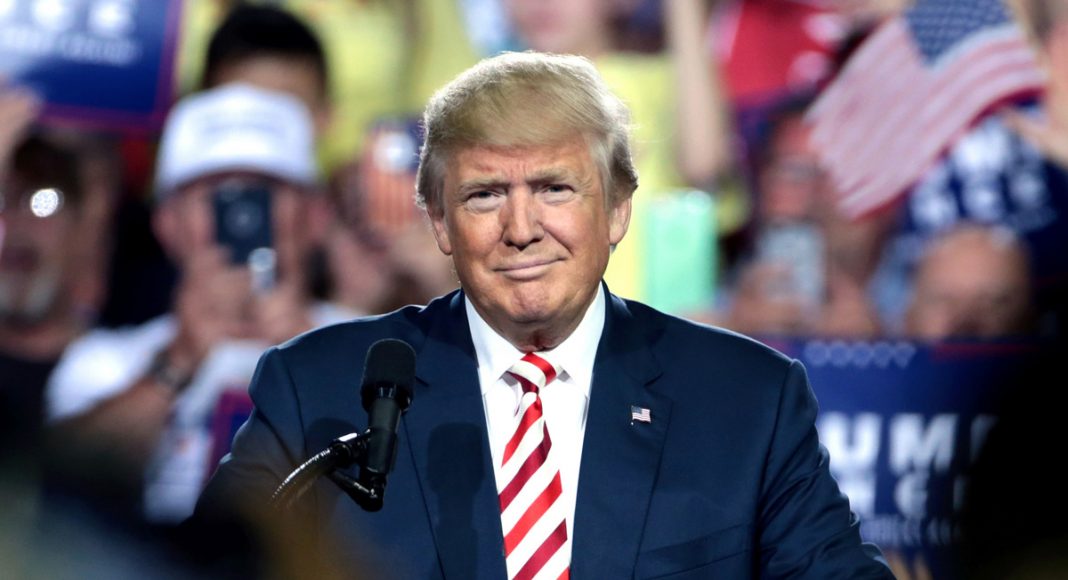With cannabis crusader Jeff Sessions tossed out of Washington, Donald Trump will nominate William Barr as his next U.S Attorney General. Those concerned with he progressive nature of marijuana reform in the United States won’t consider it the best course of action. Concerns abound from the cannabis community that if Barr, a well-documented drug warrior, is confirmed he could swoop in and make things worse for the industry than Sessions ever did.
It’s a situation where the cannabis community hopes whoever is eventually selected as the next leading law enforcement officer in the nation understands that statewide marijuana legalization efforts should be respected and not become drug war targets.
Barr, who served as attorney general back in the days of the George H.W. Bush administration, might not be the kind of attorney general who takes this hands-off approach. Known for engineering federal policies that escalated the drug war back in the early 1990s, as well as mass incarceration efforts, he once argued “there is no better way to reduce crime than to identify, target, and incapacitate those hardened criminals who commit staggering numbers of violent crimes whenever they are on the streets.”
In fact, he once called for the construction of more prisons across the United States to lock up drug offenders—most of whom, at the time, were coming into the criminal justice system for marijuana-related crimes.
Not much has changed.
Barr remains a big supporter of policies that go against the grain of where the country is headed concerning drug-related issues. In a recent op-ed for the Washington Post, he and two other former attorney generals came out in support of Jeff Sessions and his approach to running the Department of Justice. They praised him for his tough approach on crime, especially his move to impose harsher sentences for drug dealers. The piece credits Sessions’ policies for the reduction in “the rates of murder, violent crime generally, opioid prescription fraud and drug overdose deaths.”
Of course, this mindset worries the cannabis industry because until the federal government changes its policies on cannabis nationwide, all of the people running operations in states where marijuana is legal could still be prosecuted for drug crimes—the same as black market dope slingers.
“With every move by the Department of Justice facing intense public scrutiny, maintaining Jeff Sessions’ policy of reefer madness would be self-defeating,” NORML Political Director Justin Strekal said in a statement. “The movement to end the failed and cruel policy of marijuana criminalization is larger and stronger than ever, supported by a majority of Democrats, Republicans, and non-partisans.
“In 2018, five states legalized either the medicinal or adult-use of marijuana, making the total number of states out of compliance with the Controlled Substances Act now 47,” Strekal added. “It would be utterly absurd for William Barr or any agent of the Department of Justice to take any action against these state-sanctioned and operational programs.”
In addition to his pro-drug war politics, Barr is also a huge supporter of the Patriot Act, which has subjected more Americans to an invasion of privacy, and the civil asset forfeiture, a program that allows police to seize money and personal property based on only a suspicion of drug-related crime.
It’s worth noting Trump’s motivations for appointing Barr in the position of attorney general. In all likelihood, marijuana is likely the last issue he wants Barr to tackle. This appears to be more about stroking Trump’s ego and perhaps, more importantly, protecting him from the Russia probe. Still, cannabis advocates are calling for Congress to clarify Barr’s intentions concerning state marijuana laws.
“Over half of the members of the Senate Judiciary Committee represent states that have or are in the process of enacting a legal marijuana marketplace,” Strekal said. “It is our intention that Mr. Barr be put on the record regarding his current position on cannabis given his record as a proponent of the failed War on Drugs.”


